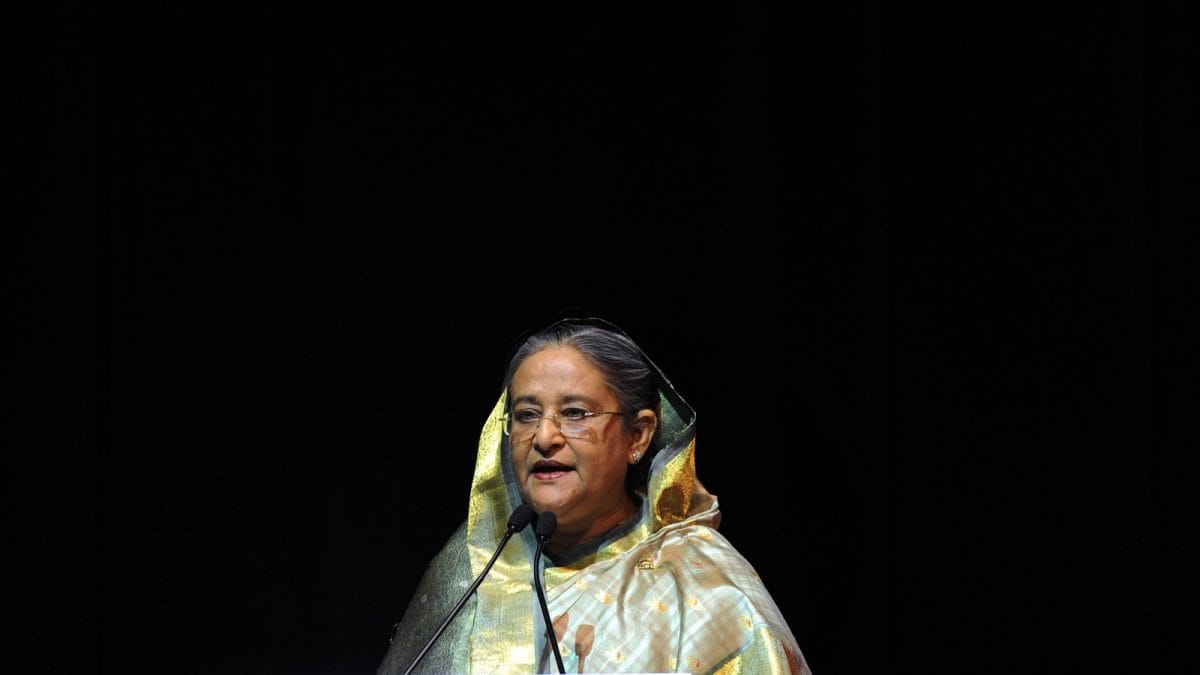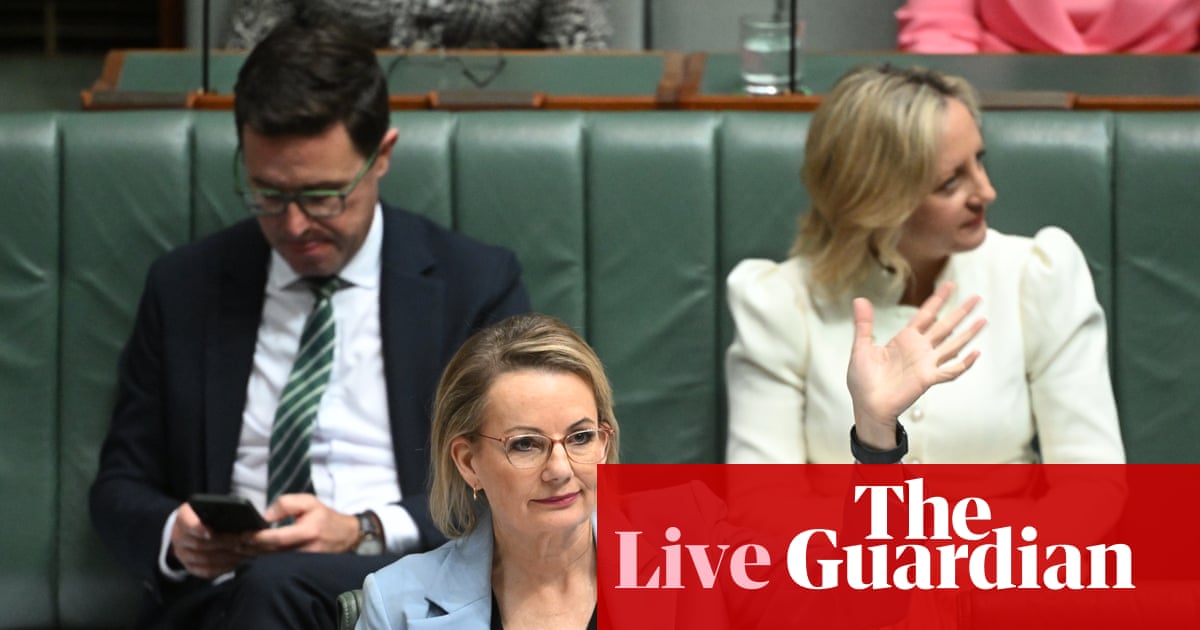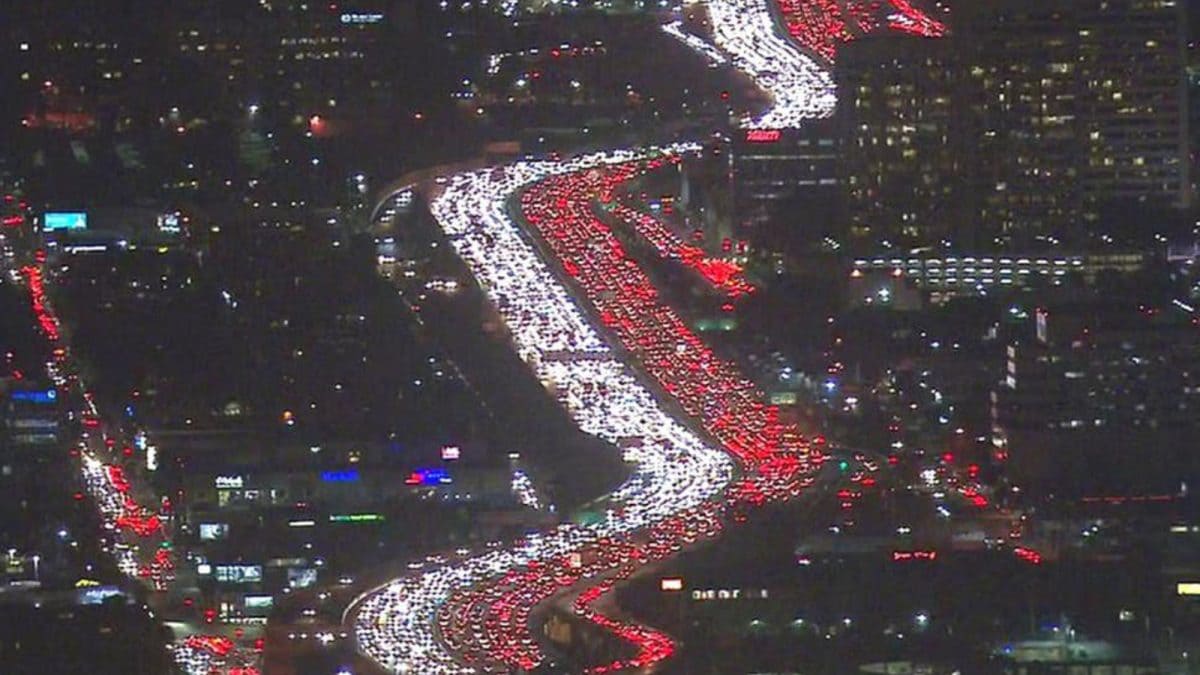RBA leaves interest rates on hold

Luca Ittimani
The Reserve Bank has left interest rates on hold at 3.6%, in a widely expected move.
Economists were confident the bank would hold today and are now parsing the RBA board’s statement for signs a fourth rate cut could still come this year.
The board has cut interest rates three times in 2025, most recently in August. Inflation has been on the rise in recent months but remains within the bank’s 2-3% target range.
We’ll bring you market reaction and more in a moment.
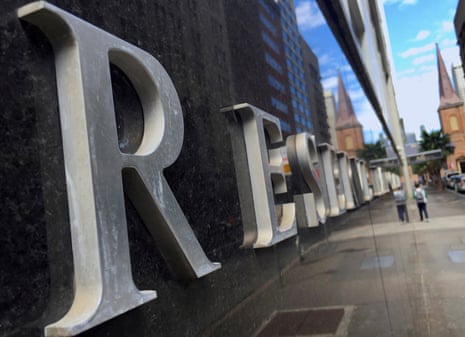
Key events Show key events only Please turn on JavaScript to use this feature

Benita Kolovos
Changes to the state’s bail laws - which passed parliament last month - also come into effect today.
Under the change, bail will be refused for anyone accused of a serious offence while they are already on bail for another serious offence, unless the decision-maker is satisfied there is a “high degree of probability” the person will not reoffend.
This new test applies to alleged offenders of all ages – including youth – and covers six offences: aggravated home invasion, aggravated carjacking, armed robbery, aggravated burglary, home invasion and carjacking.
The government has said the change will increase the “likelihood that bail will be refused and prevents re-offending.”
A ban on private companies from providing electronic monitoring services for those on bail has also come into effect.

Benita Kolovos
Age of criminal responsibility in Victoria increased to 12 as justice system changes come into effect
The age of criminal responsibility in Victoria has increased from 10 to 12, as part of a raft of changes to the justice system that come into effect today.
Victoria is the first state to raise the age from 10 to 12. It follows the Northern Territory, which raised it to 12 in 2023, while the Australian Capital Territory raised it to 14 in July.
While Victoria had also planned to eventually raise the age to 14 it backtracked last year amid concerns about increased youth crime. However, Victoria Legal Aid executive director of criminal law, Kate Bundrock, said it was still important to acknowledge the “important milestone”, which she described as an example of “legislative reform driven by evidence”.
She said:
As a community we know that 10 and 11-year-old children need care and love. Children should be supported to stay engaged with their community, family, friends and education.
They should not be spending time in police stations, court rooms or custody, which only increase the likelihood of those children re-entering the justice system in the future. While we will continue to advocate for the age to be raised to 14, it is important to recognise and celebrate the significance of this milestone.
The change formed part of the youth justice bill passed by parliament in September 2024 following years of campaigning by First Nations, legal and human rights groups.
The bill also lowered the age of prosecution for recruiting children into criminal activity from 21 to 18, which also comes into effect today. At the time, the government said the change would close a “loophole” that could result in the recruitment of young people to commit crimes.

Luca Ittimani
RBA governor says November rate cut still possible
Here’s some more from the Reserve Bank governor after today’s rates decision – she’s said it’s still possible interest rates could be cut in November despite a surprise pickup in inflation.
Inflation hit 3% in the year to August, on the less reliable monthly measure, up from 1.9% in June. AMP has predicted underlying inflation could stop falling as a result, holding at 2.7% in September on the RBA’s preferred quarterly measure.
Economists had warned the RBA would be less willing to cut if inflation stopped falling to 2.5% and the bank’s board’s warning today that inflation was “persistent” has seen market predictions of a cut this year fade, from 71% chance to 54%.
But Michele Bullock said inflation had risen but was not “running away,” meaning more cuts were possible. She told reporters:
We’ll make that decision in November about whether it’s down again or maybe it’s hold again, and if the economy is continuing to recover, that’s really good news.
Bullock said the RBA could cut rates even if inflation was at 2.7% and not falling, adding such a scenario could equally justify a longer hold and:
That could mean a couple more reductions. It might not, I don’t know at this point, and we’ll look at all this again in November.

Josh Taylor
Optus board expresses confidence in chief executive
The chair of Optus, John Arthur, has said the board, including the Singtel chief executive, Yuen Kuan Moon, is confident CEO Stephen Rue and his executive team will “undertake the critical reforms to continue to transform the business and strengthen the Optus mobile network, restoring the confidence and trust of the Australian public.”
After the meeting with the communications minister, Anika Wells, on Tuesday, Arthur said the company would appoint independent experts to provide additional oversight of the mobile network – something Wells had requested.
Global consulting firm Kearney has been appointed to begin immediate oversight, quality assurance and verification as Optus “uplifts its mobile network management and services consistent with required standards”, Arthur said.
Kearney will report regularly to Rue and the Optus board.
Arthur said:
The Optus board, which includes Singtel group chief executive officer Yuen Kuan Moon, is confident that Optus CEO Stephen Rue and the management team, supported by the best external expertise, will undertake the critical reforms to continue to transform the business, and strengthen the Optus mobile network, restoring the confidence and trust of the Australian public.
The board’s highest priority is ensuring that Australians can rely on Triple Zero when it matters most, and we would once again like to apologise to all those impacted by the 18 September outage.

Patrick Commins
S&P Global Ratings affirms Australia’s top AAA credit rating
S&P Global Ratings has affirmed Australia’s top AAA credit rating, pointing to our country’s “sound fiscal metrics” and relatively low debt levels against overseas peers.
A day after official figures confirmed that the budget tipped back into a small deficit in 2024-25 after two straight surplus years, S&P provided a tick of approval for the national finances.
S&P said it expects the general government deficit (which includes the states and territories) “to steady at 1.5-2% of GDP over the next few years, as commodity prices normalise from highs over 2023-2024”.
It also said:
Net general government debt is lower than that of most advanced economy peers and will likely remain below 30% of GDP.
The New-York based organisation pointed to “sagging” productivity but said it expected economic growth to pick back up as lower interest rates flow through to the increased activity.
S&P don’t think US trade tariffs will have much of an impact on our economy.
They also have some nice things to say about the country more broadly:
institutions are stable and provide checks and balances to power. Australia has strong respect for the rule of law, free flow of information, and open public debate on policy issues.
Reserve Bank governor says there’s ‘nothing I can do personally’ about housing prices
Bullock has acknowledged that Australians who are facing the prospect of never breaking into the housing market are in a “very, very difficult situation”, but downplayed the Reserve Bank’s role in guiding property prices.
She has said:
As an individual and as a citizen, I think it’s we’re in a very difficult position with the property market and I don’t actually think that most reasonable people think that this is a good outcome.
Having said that, there’s nothing that I can do personally about it.
Can we impact housing prices or should we impact housing prices? No. We have to focus on our mandate, which is inflation. I’ve said a number of times before, the problem in the housing market is a structural deficit of supply. That is the problem.
So the bottom line is that all I can do is make sure I keep inflation low and stable, and I keep employment as strong as possible because that gives people the best opportunities to get jobs and be able to possibly get into the market.
Bullock has been noncommittal when asked by journalists about the potential for future rate cuts based on different inflation indicators, saying she doesn’t want to give forward guidance.
She has said:
I’m not going to predict what the interest rate is going to be in the next three to six months.
What I’m saying is that we have got a situation now, which is actually quite a positive situation. We have inflation back in a 2% to 3% band, both in underlying and headline.
Reserve Bank governor says RBA aiming for ‘low and stable inflation’
Bullock has been asked about her previous statements that, in general, the price of things will never go back to what they were before the pandemic and the massive spike in inflation that followed it.
She’s reiterated that “the fact is that prices have risen and they’re staying up there permanently” but said the Reserve Bank is trying to maintain “low and stable inflation” rather than getting prices to go deflate or go backwards.
Bullock said:
Deflation is not good for businesses. It’s not good for making investment decisions.
That’s why low and stable inflation is best when it’s in the background and it isn’t influencing decisions.
But I just want people to understand that when we’re lowering inflation, that doesn’t mean we are lowering the price level.
We’re lowering the rate at which prices are increasing.
Michele Bullock says ‘price level isn’t coming back down’
The governor of the Reserve Bank of Australia (RBA), Michele Bullock, is holding a press conference in Sydney to shed some light on why the bank decided to keep interest rates steady at 3.6%.
Bullock has said monetary policy works with a lag, so the full effect on the economy of the three interest rate cuts the bank has agreed on this year “are yet to be seen”.
She’s also said that, while inflation remains within the Reserve Bank’s target range, recent data “indicate there could be a bit more upward pressure than we thought”, and that:
We know that high inflation has pushed up prices across the board over the past few years.
While inflation has fallen a lot, the price level isn’t coming back down and this higher price level affects everyone.
And it’s been especially tough on people of lower incomes and the more vulnerable. This is why it’s so important to keep inflation low and stable and unemployment as low as possible.
Coalition’s Ted O’Brien blames government spending for RBA rates decision
The opposition’s Treasury spokesperson, Ted O’Brien, has been speaking live in Brisbane where he criticised the government after the Reserve Bank’s cash rate decision.
O’Brien has said his heart goes out to mortgage holders and young Australians wanting to get into the housing market, and blamed the bank’s decision not to cut rates on the Albanese government’s economic management.
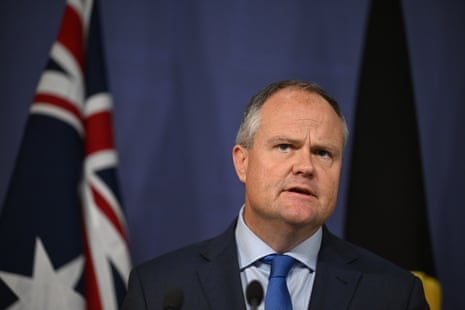
He’s noted that the Reserve Bank pointed to inflation in the September quarter being higher than expected when it decided to keep rates steady at 3.6%, and claimed this is a “direct consequence of the Albanese government’s spending spree”.
He said:
This government is spending $160bn extra … this financial year compared to when the Coalition was in government.
Clearly, the RBA has very little wriggle room. The market is estimating that there might perhaps be just one more rate cut now [this year].
If that comes to fruition, while welcomed, it means that the average mortgage holder will be paying $1,700 more every single month in interest payments rather than today’s $1,800.
Chalmers acknowledges RBA rate decision disappointing for mortgage holders
The treasurer, Jim Chalmers is addressing reporters from Melbourne after the Reserve Bank held interest rates steady at 3.6%.
The bank’s decision was widely expected, but mortgage holders will still be disappointed that their repayments won’t fall at least until later this year.
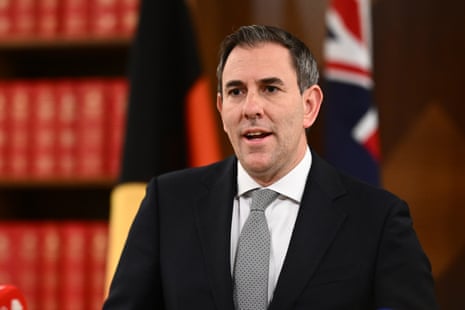
Chalmers acknowledged that was disappointment, saying:
This is not the outcome that millions of Australian homeowners would have wanted but it’s certainly the outcome that markets and economists were expecting.
The treasurer has been repeating some of his classic lines – emphasising the bank’s independence, saying that he doesn’t pre-empt its decisions and declining to comment when asked if he’s concerned it won’t bring rates down further.
He said:
I don’t engage in that kind of commentary. We’ve seen interest rates cut three times already this year.
When we came to office, interest rates were already rising. Inflation was around double what it is now and rising fast.
We’ve been able to get inflation down. We’ve seen interest rates cut multiple times. As a consequence we’ve got real wages growing. We’ve kept unemployment low.

Catie McLeod
Good afternoon, I’ll take you through the rest of today’s news.

Nick Visser
That’s all from me! Catie McLeod will be your shepherd for the rest of the arvo. Take care.

Luca Ittimani
Markets bet against rate cuts after RBA warns inflation higher than expected
The Reserve Bank board has said inflation could be higher than it predicted as the economy picks up speed faster than expected, dampening hopes for another rate cut in 2025.
The bank’s interest rate board unanimously voted to leave rates at 3.6%, saying there were signs prices were still rising too fast. In a statement accompanying its decision, the board said:
Inflation in the September quarter may be higher than expected …
With signs that private demand is recovering, indications that inflation may be persistent in some areas and labour market conditions overall remaining stable, the Board decided that it was appropriate to [hold].
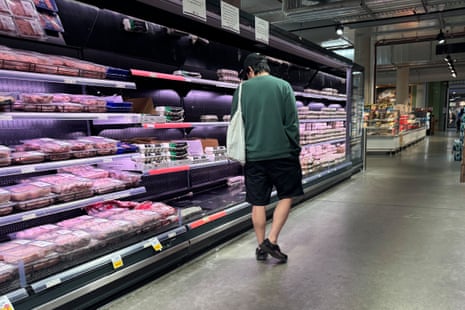
The board judged household consumption was strengthening and taking over from government spending as the main driver of Australia’s economy, alongside business activity. It believed interest rates were low enough for those who needed to borrow.
Private demand is recovering a little more rapidly than expected … Credit is readily available to both households and businesses.
The Australian dollar rose above 66 US cents in the wake of the announcement and the Australian share market slipped, in a sign markets expect a longer wait for rate cuts.

 1 month ago
1 month ago


